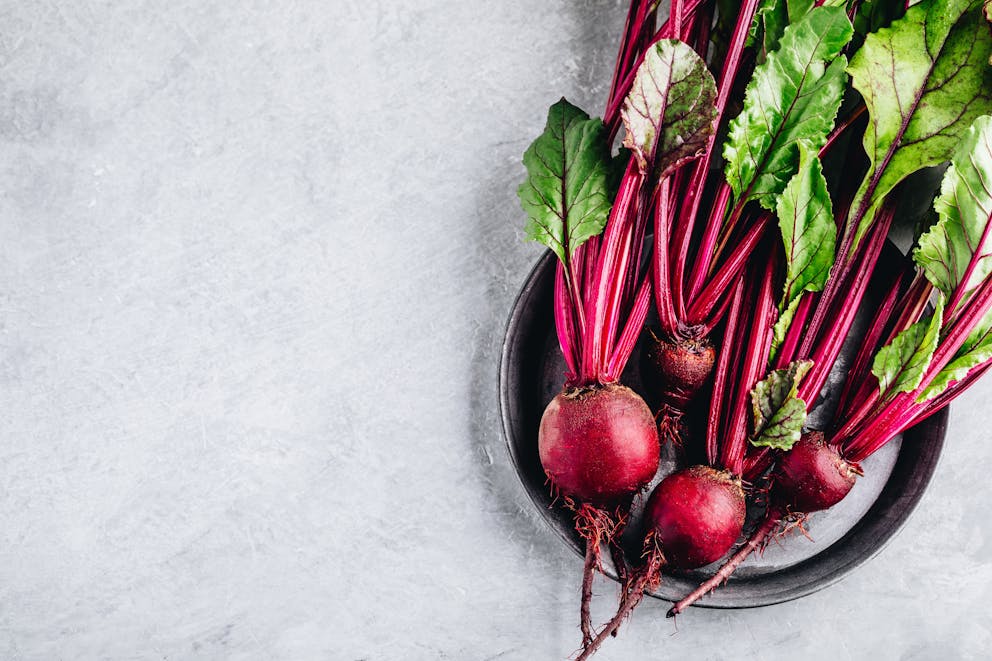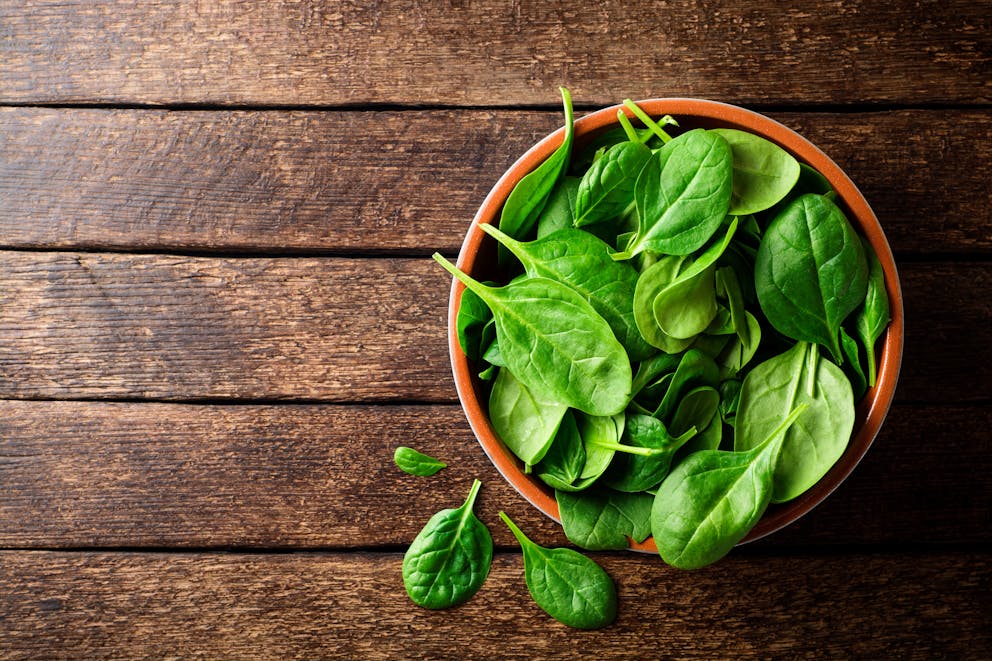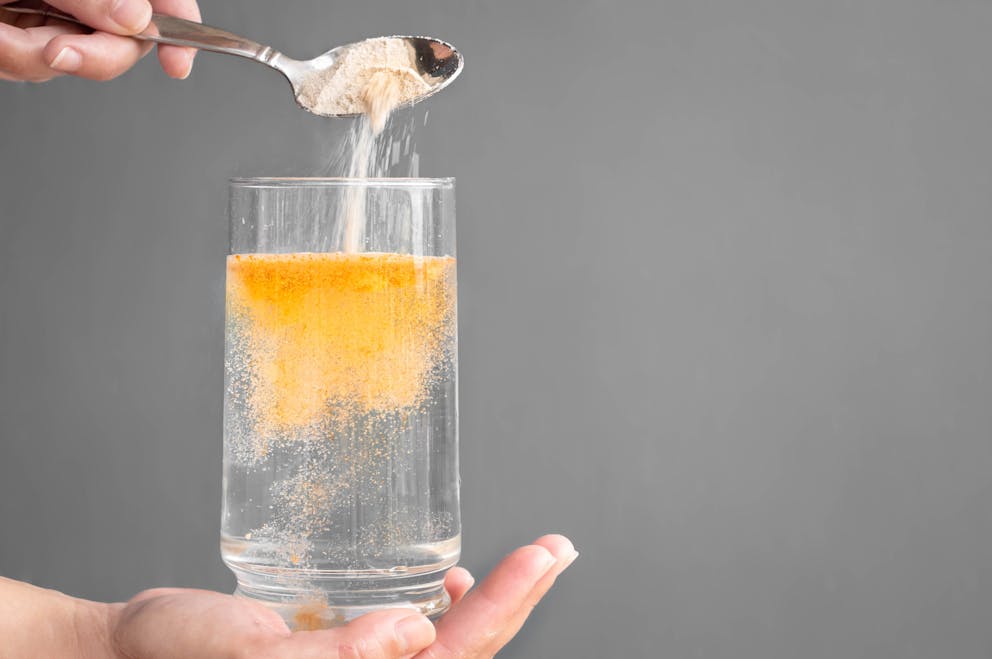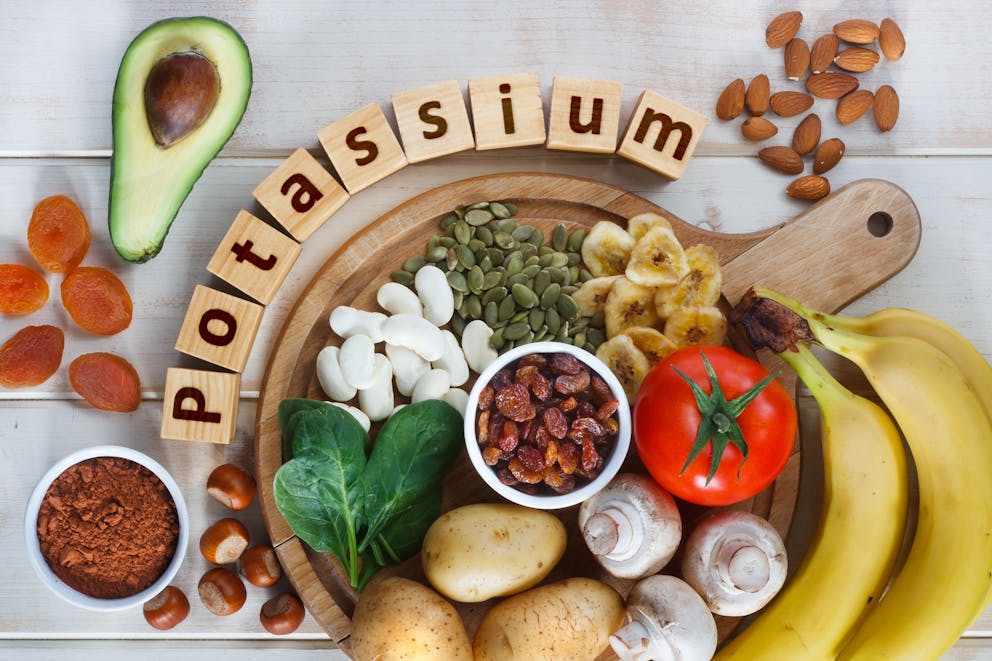7 Foods High in Potassium

25 Top Supplements That Really Work
Discover the most effective supplements to promote a healthy body
Learn about key supplements to support digestion, brain function, energy, and more
Understand how to manage common health issues with specific supplements

25 Top Supplements That Really Work
Discover the most effective supplements to promote a healthy body
Learn about key supplements to support digestion, brain function, energy, and more
Understand how to manage common health issues with specific supplements

25 Top Supplements That Really Work
Discover the most effective supplements to promote a healthy body
Learn about key supplements to support digestion, brain function, energy, and more
Understand how to manage common health issues with specific supplements

25 Top Supplements That Really Work
Discover the most effective supplements to promote a healthy body
Learn about key supplements to support digestion, brain function, energy, and more
Understand how to manage common health issues with specific supplements

25 Top Supplements That Really Work
Discover the most effective supplements to promote a healthy body
Learn about key supplements to support digestion, brain function, energy, and more
Understand how to manage common health issues with specific supplements

25 Top Supplements That Really Work
Discover the most effective supplements to promote a healthy body
Learn about key supplements to support digestion, brain function, energy, and more
Understand how to manage common health issues with specific supplements

25 Top Supplements That Really Work
Discover the most effective supplements to promote a healthy body
Learn about key supplements to support digestion, brain function, energy, and more
Understand how to manage common health issues with specific supplements

25 Top Supplements That Really Work
Discover the most effective supplements to promote a healthy body
Learn about key supplements to support digestion, brain function, energy, and more
Understand how to manage common health issues with specific supplements

25 Top Supplements That Really Work
Discover the most effective supplements to promote a healthy body
Learn about key supplements to support digestion, brain function, energy, and more
Understand how to manage common health issues with specific supplements

25 Top Supplements That Really Work
Discover the most effective supplements to promote a healthy body
Learn about key supplements to support digestion, brain function, energy, and more
Understand how to manage common health issues with specific supplements

25 Top Supplements That Really Work
Discover the most effective supplements to promote a healthy body
Learn about key supplements to support digestion, brain function, energy, and more
Understand how to manage common health issues with specific supplements

25 Top Supplements That Really Work
Discover the most effective supplements to promote a healthy body
Learn about key supplements to support digestion, brain function, energy, and more
Understand how to manage common health issues with specific supplements

25 Top Supplements That Really Work
Discover the most effective supplements to promote a healthy body
Learn about key supplements to support digestion, brain function, energy, and more
Understand how to manage common health issues with specific supplements

25 Top Supplements That Really Work
Discover the most effective supplements to promote a healthy body
Learn about key supplements to support digestion, brain function, energy, and more
Understand how to manage common health issues with specific supplements

25 Top Supplements That Really Work
Discover the most effective supplements to promote a healthy body
Learn about key supplements to support digestion, brain function, energy, and more
Understand how to manage common health issues with specific supplements

25 Top Supplements That Really Work
Discover the most effective supplements to promote a healthy body
Learn about key supplements to support digestion, brain function, energy, and more
Understand how to manage common health issues with specific supplements

25 Top Supplements That Really Work
Discover the most effective supplements to promote a healthy body
Learn about key supplements to support digestion, brain function, energy, and more
Understand how to manage common health issues with specific supplements

25 Top Supplements That Really Work
Discover the most effective supplements to promote a healthy body
Learn about key supplements to support digestion, brain function, energy, and more
Understand how to manage common health issues with specific supplements

25 Top Supplements That Really Work
Discover the most effective supplements to promote a healthy body
Learn about key supplements to support digestion, brain function, energy, and more
Understand how to manage common health issues with specific supplements

25 Top Supplements That Really Work
Discover the most effective supplements to promote a healthy body
Learn about key supplements to support digestion, brain function, energy, and more
Understand how to manage common health issues with specific supplements

25 Top Supplements That Really Work
Discover the most effective supplements to promote a healthy body
Learn about key supplements to support digestion, brain function, energy, and more
Understand how to manage common health issues with specific supplements

25 Top Supplements That Really Work
Discover the most effective supplements to promote a healthy body
Learn about key supplements to support digestion, brain function, energy, and more
Understand how to manage common health issues with specific supplements

25 Top Supplements That Really Work
Discover the most effective supplements to promote a healthy body
Learn about key supplements to support digestion, brain function, energy, and more
Understand how to manage common health issues with specific supplements

25 Top Supplements That Really Work
Discover the most effective supplements to promote a healthy body
Learn about key supplements to support digestion, brain function, energy, and more
Understand how to manage common health issues with specific supplements

25 Top Supplements That Really Work
Discover the most effective supplements to promote a healthy body
Learn about key supplements to support digestion, brain function, energy, and more
Understand how to manage common health issues with specific supplements

Beginner’s Guide to Healthy Keto & Intermittent Fasting
Receive a step-by-step guide to starting Healthy Keto® and intermittent fasting
Learn about foundational principles and best practices for beginners
Get detailed visual guidance on portion sizes and meal composition
Discover how to set achievable goals and monitor your progress
Find practical tips for overcoming common challenges and staying motivated

Beginner’s Guide to Healthy Keto & Intermittent Fasting
Receive a step-by-step guide to starting Healthy Keto® and intermittent fasting
Learn about foundational principles and best practices for beginners
Get detailed visual guidance on portion sizes and meal composition
Discover how to set achievable goals and monitor your progress
Find practical tips for overcoming common challenges and staying motivated

Beginner’s Guide to Healthy Keto & Intermittent Fasting
Receive a step-by-step guide to starting Healthy Keto® and intermittent fasting
Learn about foundational principles and best practices for beginners
Get detailed visual guidance on portion sizes and meal composition
Discover how to set achievable goals and monitor your progress
Find practical tips for overcoming common challenges and staying motivated

Beginner’s Guide to Healthy Keto & Intermittent Fasting
Receive a step-by-step guide to starting Healthy Keto® and intermittent fasting
Learn about foundational principles and best practices for beginners
Get detailed visual guidance on portion sizes and meal composition
Discover how to set achievable goals and monitor your progress
Find practical tips for overcoming common challenges and staying motivated

Beginner’s Guide to Healthy Keto & Intermittent Fasting
Receive a step-by-step guide to starting Healthy Keto® and intermittent fasting
Learn about foundational principles and best practices for beginners
Get detailed visual guidance on portion sizes and meal composition
Discover how to set achievable goals and monitor your progress
Find practical tips for overcoming common challenges and staying motivated

Beginner’s Guide to Healthy Keto & Intermittent Fasting
Receive a step-by-step guide to starting Healthy Keto® and intermittent fasting
Learn about foundational principles and best practices for beginners
Get detailed visual guidance on portion sizes and meal composition
Discover how to set achievable goals and monitor your progress
Find practical tips for overcoming common challenges and staying motivated

Beginner’s Guide to Healthy Keto & Intermittent Fasting
Receive a step-by-step guide to starting Healthy Keto® and intermittent fasting
Learn about foundational principles and best practices for beginners
Get detailed visual guidance on portion sizes and meal composition
Discover how to set achievable goals and monitor your progress
Find practical tips for overcoming common challenges and staying motivated

Beginner’s Guide to Healthy Keto & Intermittent Fasting
Receive a step-by-step guide to starting Healthy Keto® and intermittent fasting
Learn about foundational principles and best practices for beginners
Get detailed visual guidance on portion sizes and meal composition
Discover how to set achievable goals and monitor your progress
Find practical tips for overcoming common challenges and staying motivated

Beginner’s Guide to Healthy Keto & Intermittent Fasting
Receive a step-by-step guide to starting Healthy Keto® and intermittent fasting
Learn about foundational principles and best practices for beginners
Get detailed visual guidance on portion sizes and meal composition
Discover how to set achievable goals and monitor your progress
Find practical tips for overcoming common challenges and staying motivated

Beginner’s Guide to Healthy Keto & Intermittent Fasting
Receive a step-by-step guide to starting Healthy Keto® and intermittent fasting
Learn about foundational principles and best practices for beginners
Get detailed visual guidance on portion sizes and meal composition
Discover how to set achievable goals and monitor your progress
Find practical tips for overcoming common challenges and staying motivated

Beginner’s Guide to Healthy Keto & Intermittent Fasting
Receive a step-by-step guide to starting Healthy Keto® and intermittent fasting
Learn about foundational principles and best practices for beginners
Get detailed visual guidance on portion sizes and meal composition
Discover how to set achievable goals and monitor your progress
Find practical tips for overcoming common challenges and staying motivated

Beginner’s Guide to Healthy Keto & Intermittent Fasting
Receive a step-by-step guide to starting Healthy Keto® and intermittent fasting
Learn about foundational principles and best practices for beginners
Get detailed visual guidance on portion sizes and meal composition
Discover how to set achievable goals and monitor your progress
Find practical tips for overcoming common challenges and staying motivated

Beginner’s Guide to Healthy Keto & Intermittent Fasting
Receive a step-by-step guide to starting Healthy Keto® and intermittent fasting
Learn about foundational principles and best practices for beginners
Get detailed visual guidance on portion sizes and meal composition
Discover how to set achievable goals and monitor your progress
Find practical tips for overcoming common challenges and staying motivated

Beginner’s Guide to Healthy Keto & Intermittent Fasting
Receive a step-by-step guide to starting Healthy Keto® and intermittent fasting
Learn about foundational principles and best practices for beginners
Get detailed visual guidance on portion sizes and meal composition
Discover how to set achievable goals and monitor your progress
Find practical tips for overcoming common challenges and staying motivated

Beginner’s Guide to Healthy Keto & Intermittent Fasting
Receive a step-by-step guide to starting Healthy Keto® and intermittent fasting
Learn about foundational principles and best practices for beginners
Get detailed visual guidance on portion sizes and meal composition
Discover how to set achievable goals and monitor your progress
Find practical tips for overcoming common challenges and staying motivated

Beginner’s Guide to Healthy Keto & Intermittent Fasting
Receive a step-by-step guide to starting Healthy Keto® and intermittent fasting
Learn about foundational principles and best practices for beginners
Get detailed visual guidance on portion sizes and meal composition
Discover how to set achievable goals and monitor your progress
Find practical tips for overcoming common challenges and staying motivated

Beginner’s Guide to Healthy Keto & Intermittent Fasting
Receive a step-by-step guide to starting Healthy Keto® and intermittent fasting
Learn about foundational principles and best practices for beginners
Get detailed visual guidance on portion sizes and meal composition
Discover how to set achievable goals and monitor your progress
Find practical tips for overcoming common challenges and staying motivated

Beginner’s Guide to Healthy Keto & Intermittent Fasting
Receive a step-by-step guide to starting Healthy Keto® and intermittent fasting
Learn about foundational principles and best practices for beginners
Get detailed visual guidance on portion sizes and meal composition
Discover how to set achievable goals and monitor your progress
Find practical tips for overcoming common challenges and staying motivated

Beginner’s Guide to Healthy Keto & Intermittent Fasting
Receive a step-by-step guide to starting Healthy Keto® and intermittent fasting
Learn about foundational principles and best practices for beginners
Get detailed visual guidance on portion sizes and meal composition
Discover how to set achievable goals and monitor your progress
Find practical tips for overcoming common challenges and staying motivated

Beginner’s Guide to Healthy Keto & Intermittent Fasting
Receive a step-by-step guide to starting Healthy Keto® and intermittent fasting
Learn about foundational principles and best practices for beginners
Get detailed visual guidance on portion sizes and meal composition
Discover how to set achievable goals and monitor your progress
Find practical tips for overcoming common challenges and staying motivated

Beginner’s Guide to Healthy Keto & Intermittent Fasting
Receive a step-by-step guide to starting Healthy Keto® and intermittent fasting
Learn about foundational principles and best practices for beginners
Get detailed visual guidance on portion sizes and meal composition
Discover how to set achievable goals and monitor your progress
Find practical tips for overcoming common challenges and staying motivated

Beginner’s Guide to Healthy Keto & Intermittent Fasting
Receive a step-by-step guide to starting Healthy Keto® and intermittent fasting
Learn about foundational principles and best practices for beginners
Get detailed visual guidance on portion sizes and meal composition
Discover how to set achievable goals and monitor your progress
Find practical tips for overcoming common challenges and staying motivated

Beginner’s Guide to Healthy Keto & Intermittent Fasting
Receive a step-by-step guide to starting Healthy Keto® and intermittent fasting
Learn about foundational principles and best practices for beginners
Get detailed visual guidance on portion sizes and meal composition
Discover how to set achievable goals and monitor your progress
Find practical tips for overcoming common challenges and staying motivated

Beginner’s Guide to Healthy Keto & Intermittent Fasting
Receive a step-by-step guide to starting Healthy Keto® and intermittent fasting
Learn about foundational principles and best practices for beginners
Get detailed visual guidance on portion sizes and meal composition
Discover how to set achievable goals and monitor your progress
Find practical tips for overcoming common challenges and staying motivated
Potassium is a crucial but often overlooked electrolyte that regulates fluid balance, energy production, and nerve signal transmission.
While it’s generally believed that bananas are one of the best dietary sources of potassium, several other food sources contain significantly more potassium.
Discover seven foods high in potassium and learn how much potassium you need to maintain electrolyte balance.

Foods high in potassium
Contrary to common belief, bananas are not the best source of potassium, and you’d have to consume more than ten bananas to meet your recommended daily potassium intake.
In addition, bananas and other potassium-containing fruits—including apricots and oranges—are high in sugar, which is linked to potassium deficiency.
Research published in Expert Review of Endocrinology and Metabolism found that fluctuating blood glucose levels–typically a result of sugar consumption–can deplete potassium and lead to electrolyte imbalances.
Luckily, there are plenty of sugar-free foods rich in potassium that promote electrolyte balance and help prevent potassium deficiency.
Here are seven top food sources of potassium.
1. Beet tops
One cup (38 grams) of beet tops contains 1300 mg of potassium, making it one of the best dietary sources of potassium.
Beet greens also contain other nutrients, such as vitamins C and K, and are an excellent source of dietary fiber.
Beet tops can be sauteed or stir-fried, made into a delicious salad base, or added to various smoothies, soups, and stews.
2. Avocado
Avocados are another excellent source of potassium.
One medium-sized (150-gram) avocado contains around 975 mg of potassium. This is significantly higher than many other potassium-containing fruits, such as bananas, which have only around 400 mg of potassium.
Avocados are well known for their creamy texture and slightly nutty flavor, which works well in salads and dips and adds a delicious creaminess to smoothies.
Avocados are perfect for making your own electrolyte drink rich in potassium by blending them with berries, apple cider vinegar, lemon juice, Himalayan pink salt, water, and ice cubes.
3. Lima beans
Lima beans are rich in potassium, delivering 975 mg of this essential nutrient per cup (170 grams).
However, if you are following a keto diet, it’s important to remember that lima beans are relatively high in carbs, and it’s crucial to include them in your daily net carb count to avoid being kicked out of ketosis.

4. Spinach
Spinach and other leafy greens, such as Swiss chard, are good sources of potassium and should regularly feature on your meal plan.
One cup (225 grams) of spinach contains 839 mg of potassium.
5. Salmon
A six-ounce (170-gram) serving of salmon contains 839 mg of potassium, making it one of the best animal sources of this crucial electrolyte.
Salmon is also incredibly rich in heart-healthy fats linked to improved cardiovascular health and a lower risk of inflammatory health conditions.
Avoid farm-raised salmon and opt for wild-caught salmon that contains significantly lower concentrations of harmful pollutants such as synthetic dyes than farmed fish products.
6. Squash
Squash is another potassium-rich food that delivers around 800 mg of potassium per cup (205 grams).
Squash also contains other minerals, such as magnesium and manganese. These essential minerals are crucial for maintaining proper nerve function, normal blood pressure, and muscle health.
7. Brussels Sprouts
While Brussels sprouts contain less potassium than avocado, beet tops, or salmon, regularly eating these cruciferous vegetables can significantly contribute towards your overall potassium intake.
A one-cup (88-gram) serving of Brussels sprouts contains around 504 mg of potassium.
Watch the video below to learn more about the top seven foods rich in potassium.
Health benefits of potassium
Potassium is the most important but often overlooked electrolyte needed to regulate and maintain many physiological functions.
Potassium works in synergy with other electrolytes, such as sodium and chloride, to control cellular fluid levels and promote optimal hydration needed for normal cell functions and energy-making processes.
While most people only think of potassium as an electrolyte, it has impressive health benefits beyond regulating fluid balance.
Here are seven health benefits of potassium.
1. Supports muscle function
Potassium plays a crucial role in regulating various aspects of muscle function.
Potassium maintains a balanced production of neurotransmitters and facilitates the transmission of nerve impulses needed to stimulate muscle contraction.
Potassium can help enhance muscle mass and promote a relaxed muscle tone, and potassium deficiency is linked to muscle weakness and other muscular issues.
A study published in Nutrition Journal confirms the role of potassium in muscle health and found that individuals with a high potassium intake are less likely to develop low muscle mass than those with inadequate potassium intake.
2. Promotes normal blood pressure regulation
High blood pressure is often linked to excessive sodium intake. However, if you suffer from elevated blood pressure, you may not be salt-sensitive but have a potassium deficiency.
“Low potassium levels, especially in combination with too much sodium intake, trigger the retention of fluids,” explains Dr. Berg. “This increases the body’s fluid and blood volume, which is the primary cause for high blood pressure.”
3. Boosts energy
Increasing your intake of potassium can boost energy levels.
Potassium is an electrolyte, which means that it carries a small electrical charger. When potassium ions enter cells, this electrical charge activates adenosine triphosphate (ATP), the body’s primary energy currency.

4. Promotes cardiovascular health
Because of potassium’s role in muscle function, it plays a vital role in regulating heart muscle contraction, and low potassium levels can increase the risk of cardiovascular disease.
A lack of adequate potassium can disrupt the nerve signals that regulate heartbeats and has been linked to the hardening and narrowing of blood vessels, which can lead to atherosclerosis, stroke, and heart attacks.
Research published in The British Medical Journal found that a high potassium intake can protect from heart disease and reduce the risk of stroke by 24 percent.
5. Helps maintain healthy bones
Potassium helps regulate the acid-base balance and promotes optimal pH levels in the body.
Regular alcohol consumption, stress, and a diet high in sugar can cause an acidic environment in the body. Excessive acidity triggers the release of bone minerals to neutralize acids, which can cause loss of bone mineral density, brittle bones, and osteoporosis.
Potassium helps maintain balanced pH levels, which preserves bone mineral stores and promotes skeletal health.
6. Combats stress
Maintaining healthy potassium levels helps combat stress and supports relaxation.
Potassium promotes a relaxed muscle tone, which can reduce tension and counteract some of the physical effects of stress.
In addition, potassium aids balanced neurotransmitter levels and neuronal health, which enhances the nervous system's ability to cope with everyday stressors.
7. Supports mental health
A clinical trial published in the British Journal of Nutrition found that people who followed a high-potassium diet experienced significant improvements in depression, perceived stress, and overall well-being compared to individuals on a low-potassium diet.
Potassium can promote mental health by maintaining the release of neurotransmitters, which play a crucial role in regulating moods, emotions, and cognitive function.

How much potassium do you need?
While it’s recommended that adults consume around 4700 milligrams of potassium per day, individuals who are physically active and athletes may need more potassium to replenish electrolyte loss from sweating.
However, a report based on data from the National Health and Nutrition Examination Survey found that many people consume only around 1900 milligrams of potassium daily, leaving a large proportion of the population at risk of deficiency.
Potassium deficiency can lead to various health issues, including:
Irregular heartbeats
High blood pressure
Fatigue
Blood sugar imbalances
Muscle cramps
Mood disorders
Brain fog and confusion
Digestive problems
Avoiding sugar, lowering sodium intake with salt substitutes containing potassium chloride, and consuming plenty of potassium-rich foods promotes adequate potassium stores and can prevent deficiency.
However, many individuals struggle to consume enough potassium and can benefit from taking a potassium supplement or a high-quality electrolyte powder containing at least 1000 mg of potassium per serving.
Although potassium is generally well tolerated by most people, individuals with chronic kidney disease should avoid taking too much potassium to avoid dangerously elevated potassium levels, also known as hyperkalemia.
It’s crucial to discuss your potassium intake with a healthcare provider if you are concerned about your kidney function or have been diagnosed with kidney disease.

Key takeaways
Regularly consuming foods high in potassium promotes adequate potassium levels and electrolyte balance, which is linked to normal heart muscle contraction and muscle function, neuronal health, normal blood pressure, and efficient energy-making processes.
While it’s often believed that bananas are one of the best potassium sources, foods such as beet tops, avocados, spinach, salmon, and Brussels sprouts contain significantly more potassium.
FAQ
1. Which foods are high in potassium?
The top food sources of potassium include beet greens, avocado, lima beans, spinach, salmon, squash, and Brussels sprouts.
2. What has more potassium than a banana?
Many foods contain significantly more potassium than bananas.
Foods including avocados, beet greens, spinach, squash, lima beans, and salmon contain between 800 and 1000 mg of potassium per cup. In contrast, a medium-sized banana has only around 400 mg of potassium.
3. How much potassium do you need each day?
The recommended daily intake of potassium for adults is 4,700 milligrams per day.
However, sweating depletes electrolytes—including potassium—and individuals with heavy workout routines, athletes, and those living in hot climates may require more potassium to maintain adequate levels.
4. What are the signs of low potassium?
Low potassium levels, also known as hypokalemia, can manifest in symptoms such as muscle weakness or cramps, fatigue, mood disorders, abnormal heart rhythms, high blood pressure, and brain fog.
5. What increases potassium quickly?
Low potassium levels can be quickly restored by taking an electrolyte powder that contains at least 1000 mg of potassium and is made with potassium citrate, a highly bioavailable and rapidly absorbed form of potassium.
6. What drink is high in potassium?
You can make your own potassium-rich electrolyte drink at home by mixing water with apple cider vinegar, a pinch of salt, and lemon juice and blending it with avocado and berries.
Alternatively, create a homemade sports drink by adding a high-quality electrolyte powder that contains calcium, magnesium, sodium, and at least 1000 milligrams of potassium to eight ounces of water.
7. Are eggs high in potassium?
Eggs are not a significant source of potassium. One egg contains around 60 mg of potassium, which is a fraction of the recommended daily potassium intake of 4,700 milligrams.
Sources
Previous blog
Eat Plants Not the GrainsTags

Popular
08/21/2024
55K views
02/23/2025
46.3K views
11/18/2024
277.5K views
03/18/2024
11/21/2022




